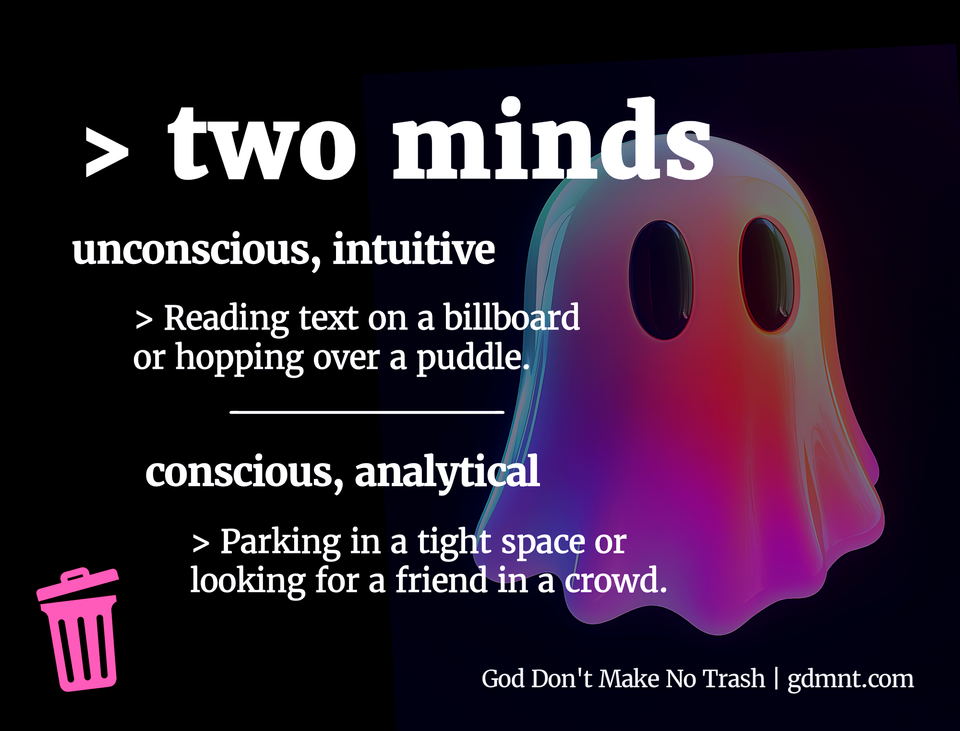How we think 💡⚡

> intro to psych | free will
hot mind | the other you
How many times a day do you do something "without thinking about it"?
This "hot" mode of thinking is also known as System 1, or the unconscious mind. It handles faster, everyday decisions.
- But it sacrifices accuracy for speed. As a result, it's highly prone to error.
Our non-conscious mind, as it's also sometimes called, is a pool of urges, feelings, thoughts, and memories that is not easy to consciously access. 😍💔
Other names for the hot mind include automatic, unconscious, subconscious, involuntary, uncontrolled, impulsive, implicit, and effortless.
how it's used | Reading text on a billboard or hopping over a puddle.
why it matters | Corporate brands rely on this thinking mode to make their messages cognitively stickier. One tactic, for example, is to make bold claims feel truthful through saturation messaging.
cold mind | the aware you
The "cold" thinking mode demands mental exertion, focus, and attention. It's also known as System 2.
Instead of firing off automatically like System 1, these mental actions need our conscious effort to be carried out. System 2 is used for critical thinking and problem solving.
It includes conscious beliefs and attitudes about other people that we know are present in our thinking. Other names for this thinking mode include conscious, controlled, voluntary, deliberate, reflective, or explicit. 💡⚡
how it's used | Parking in a tight space or looking for a friend in a crowd.
why it matters | "System 2 is activated when an event is detected that violates the model of the world that System 1 maintains," the late psychologist Daniel Kahneman said.
- next time "I should just delete his number and show him."
- listening Witch "Seer"
>> full series | alerts | playlist / social | tip jar

